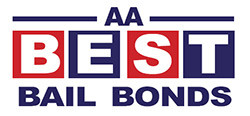 Before you contact a bail bond company, you need to gather some basic information about the person whom you are trying to bail out of jail. That includes their name, booking number and the name of the jail. This post answers any other questions you may have about working with a bail bond company.
Before you contact a bail bond company, you need to gather some basic information about the person whom you are trying to bail out of jail. That includes their name, booking number and the name of the jail. This post answers any other questions you may have about working with a bail bond company.
1. You Can’t Work With a Bail Bonds Company for Cash Bonds
There are different types of bail. If the court has demanded a cash bond, you can’t work with a company. You have to post the bail yourself in cash or verified funds.
You may be able to work with a bail agent for a property bond. That’s where the courts agree to accept a property deed instead of cash. You can always work with a bail bond company if the courts have demanded a surety bond.
2. You Carry Some Liability if the Individual Doesn’t Show Up for Court
If you work with a bail bond company to bail someone out of jail, you accept some liability if that individual doesn’t show up for the trial. When you agreeing to accept liability you usually have to sign a promissory note.
A promissory note states that you take financial responsibility for the amount of the bail bond if the individual doesn’t show up for court.
3. You May Receive a Bail Refund
To understand why you need to sign the promissory agreement, it helps to understand the basics of how bail bonds work. Whether a bail bond agent or an individual pays the bail, it acts as financial leverage. If the individual comes to the trial, the courts refund the money. If the individual doesn’t show up for their court date, the courts keep the money.
If a bail bond company has posted bail, the company doesn’t want to lose that money. As a result, the company holds you responsible for paying back that loan. In addition to the bail amount, you may have to cover fees related to collection fees, costs that the bail agent pays to a bounty hunter to find the accused person and any other related costs.
4. You Will Not Be Refunded the Bail Bond Fee
Bail bond companies help you cover bail amounts that you can’t afford on your own, but they don’t provide this service for free. They usually charge a percentage of the bail amount. Whether the person shows up for court or not, this amount is not refundable.
If you pay this money on behalf of a friend or relative who has been arrested, you should treat it like a gift or a loan. However, it’s up to you to get your loved one to repay you. The bail bond company is not involved.
5. You May Also Have to Sign an Indemnity Agreement
The promissory note is not the only document that you need to sign. With most bail bond companies, you have to sign an indemnity agreement. Indemnity refers to compensation for losses. When you sign this agreement, you pledge to not hold the bail bond company responsible for any losses that you incur.
6. You Usually Need a Notary Public
With all the paperwork involved in getting a bail bond, you may need a notary public. A notary someone who puts an additional signature and a special seal on a document. A notary’s signature provides additional verification that the document has really been signed.
Ask the bail bond company if they have a notary on site. If the company doesn’t have a notary, you may want to download the documents, fill them out and take them to a notary public.
7. Not Bailing Out a Loved One Can Lead to a Guilty Verdict
According to Harvard Law School, if someone can’t post bail and has to sit in jail until the trial, that individual is 25% more likely to face a guilty verdict. You can help your loved one avoid this by posting bail.
Contact us today. At AA Best Bail Bonds, we are committed to helping you through this experience.





